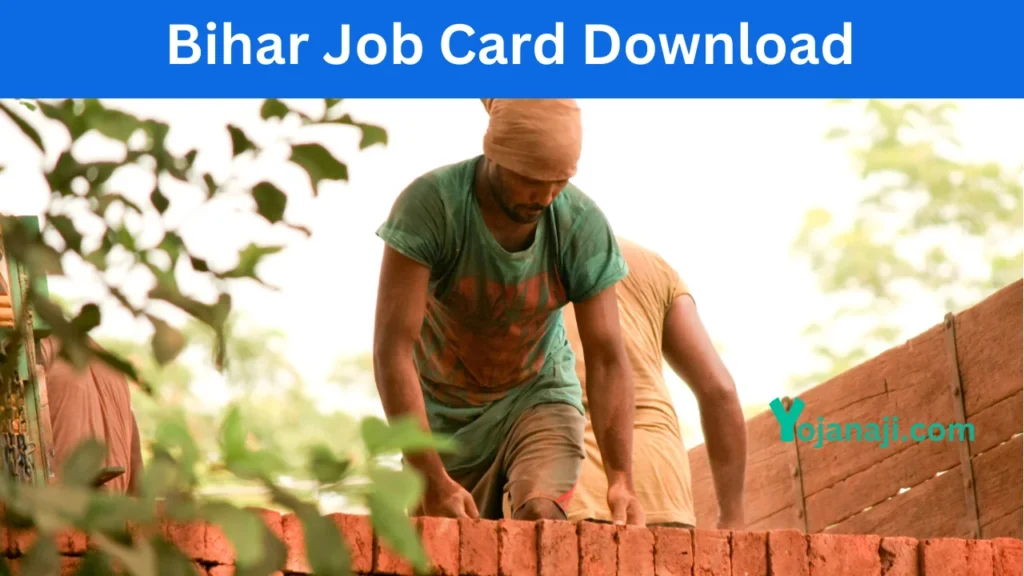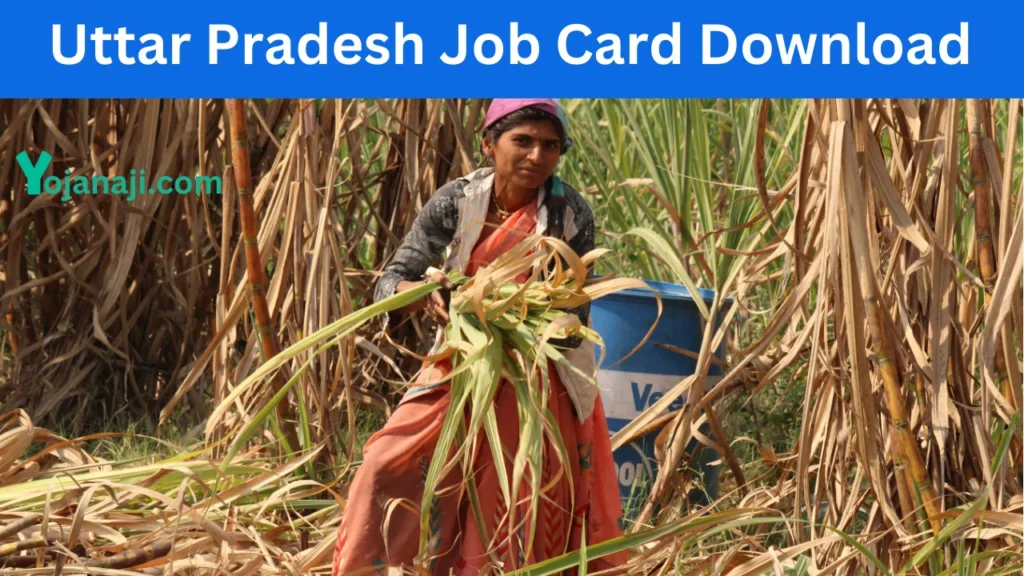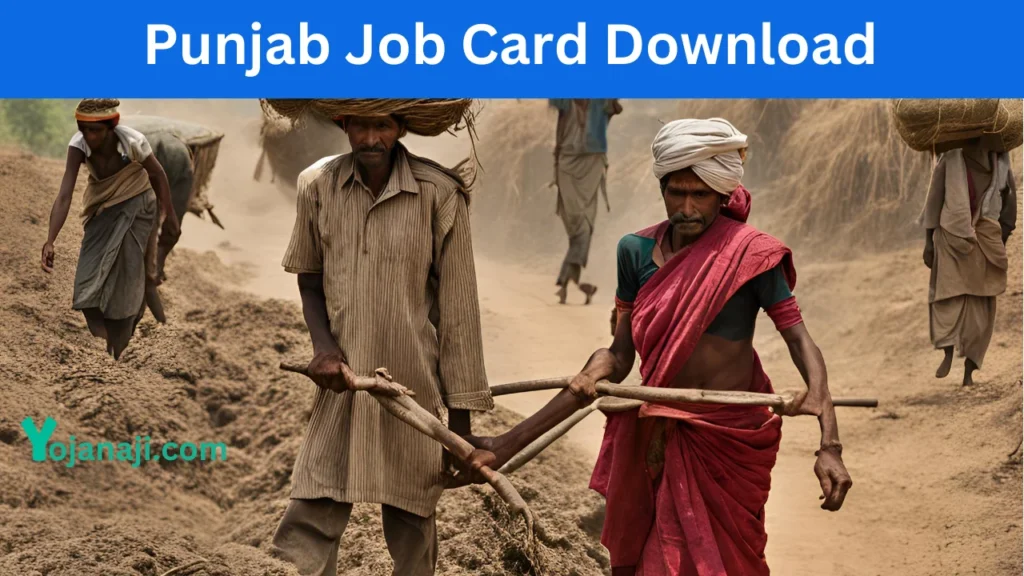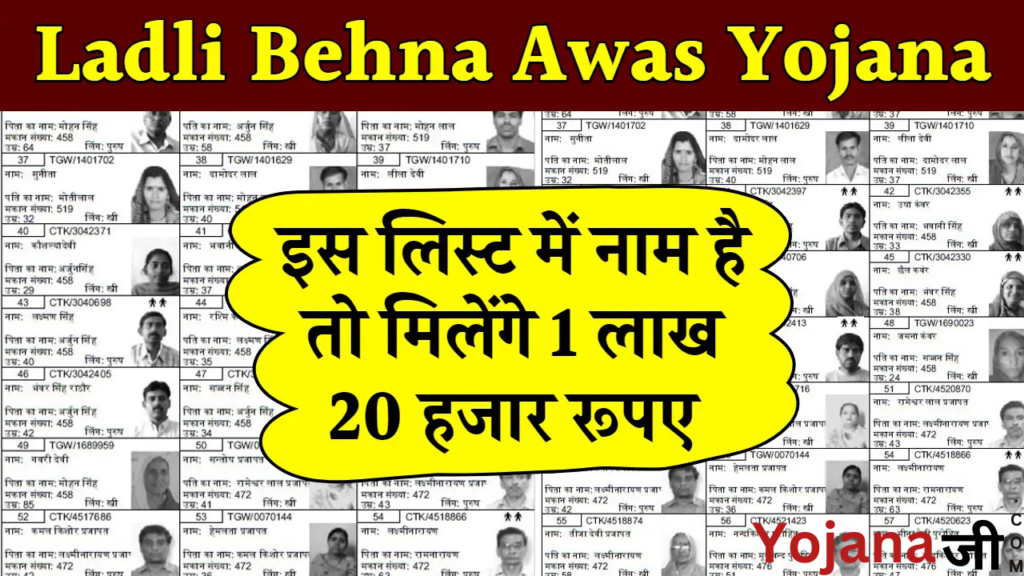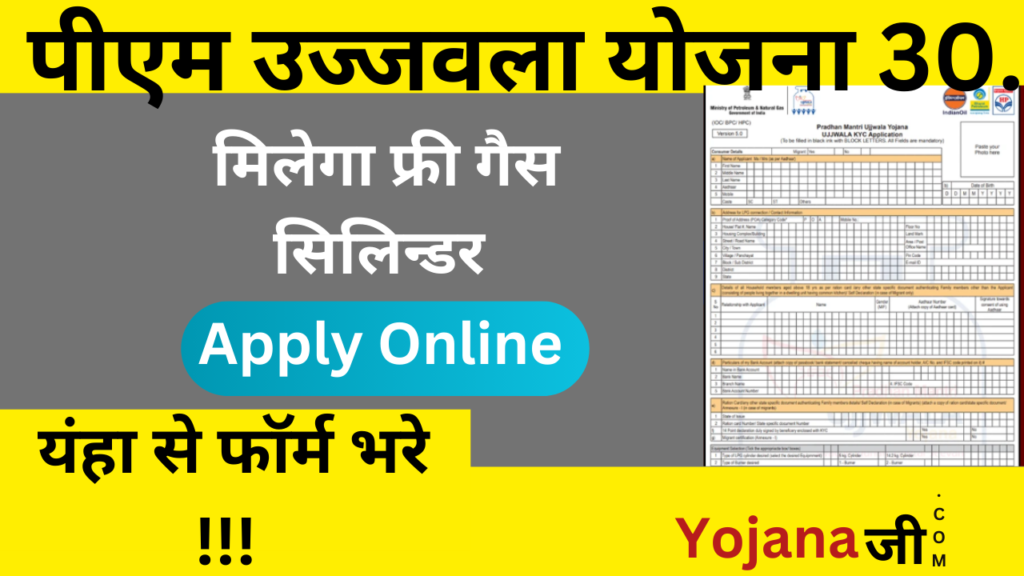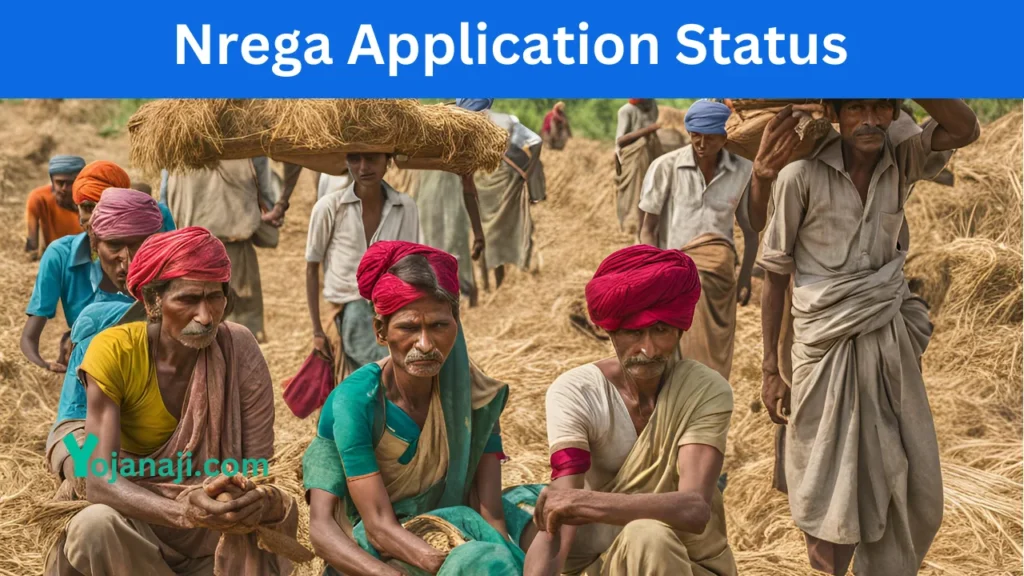The NREGA registration process is designed to be inclusive and straightforward, ensuring that rural households can easily avail themselves of the scheme’s benefits. The process typically involves registering with the local Gram Panchayat, the smallest unit of local government, which plays a central role in implementing NREGA at the grassroots level. Here’s a comprehensive breakdown of the registration steps and requirements.
The registration process for the Mahatma Gandhi National Rural Employment Guarantee Act (NREGA) is designed to be straightforward, enabling rural households to access guaranteed employment easily. The process begins with any adult member of a rural household willing to do unskilled manual work submitting an application for registration to the local Gram Panchayat. This application can be submitted either in written form or orally, depending on the applicant’s convenience and literacy level.
Upon receiving the application, the Gram Panchayat verifies the information provided by the applicant. The verification process includes confirming the applicant’s identity, residency, and willingness to undertake manual work. Once the verification is complete, the Gram Panchayat registers the household and issues a job card, typically within 15 days of receiving the application. The job card is a crucial document as it serves as an identity card for the worker and contains details like the household’s name, address, and photographs of adult members willing to work.
The job card also records the employment provided under NREGA, the wages paid, and other relevant information. It ensures transparency and accountability in the implementation of the scheme. If a household does not receive the job card within the stipulated period, they can follow up with the Gram Panchayat or lodge a complaint through the scheme’s grievance redressal mechanism.
After receiving the job card, a household can apply for work by submitting a written application to the Gram Panchayat, specifying the time and duration for which employment is required. The Gram Panchayat is then responsible for providing work within 15 days of receiving this application. If work is not provided, the household is entitled to an unemployment allowance as per the provisions of the NREGA.
Overall, the NREGA registration process ensures that rural households can access guaranteed employment with minimal bureaucratic hurdles. The system aims to empower rural workers, reduce poverty, and enhance the rural economy by providing a reliable source of income through employment opportunities in public works.
Online Registration Process
The online registration process for NREGA is designed to streamline the application process, making it more accessible and efficient. Here’s how you can navigate the online registration process:
Step 1: Visit the Official NREGA Portal
Start by visiting the official NREGA website: nrega.nic.in. This portal serves as the central hub for all NREGA-related information and services.
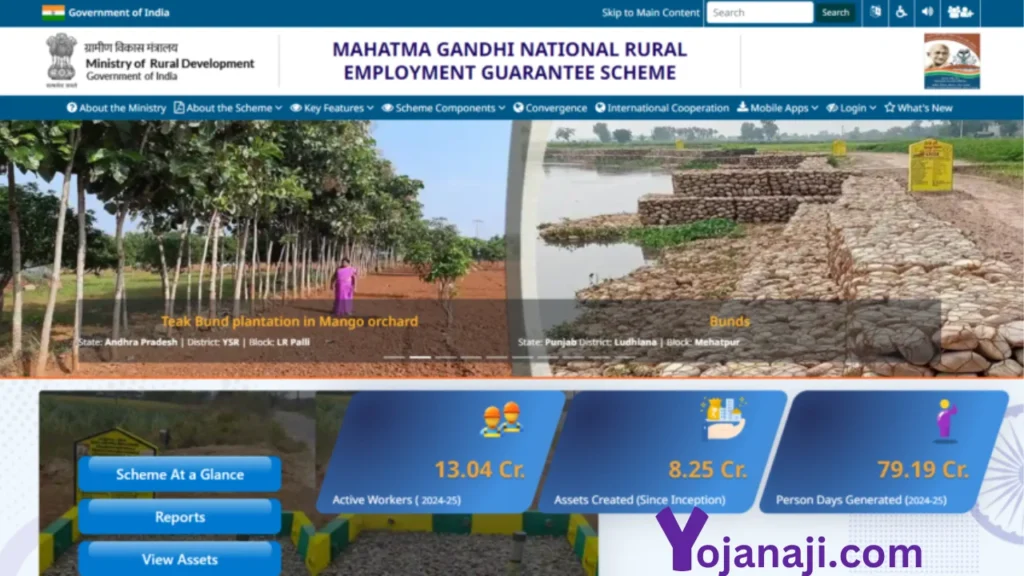
Step 2: Locate the Registration Section
On the homepage, look for the “Public Services” or “Citizen Services” section. This area typically contains links to various services, including registration and application forms.
- Click on the link for “Registration” or “Job Card Registration” to access the online registration page.
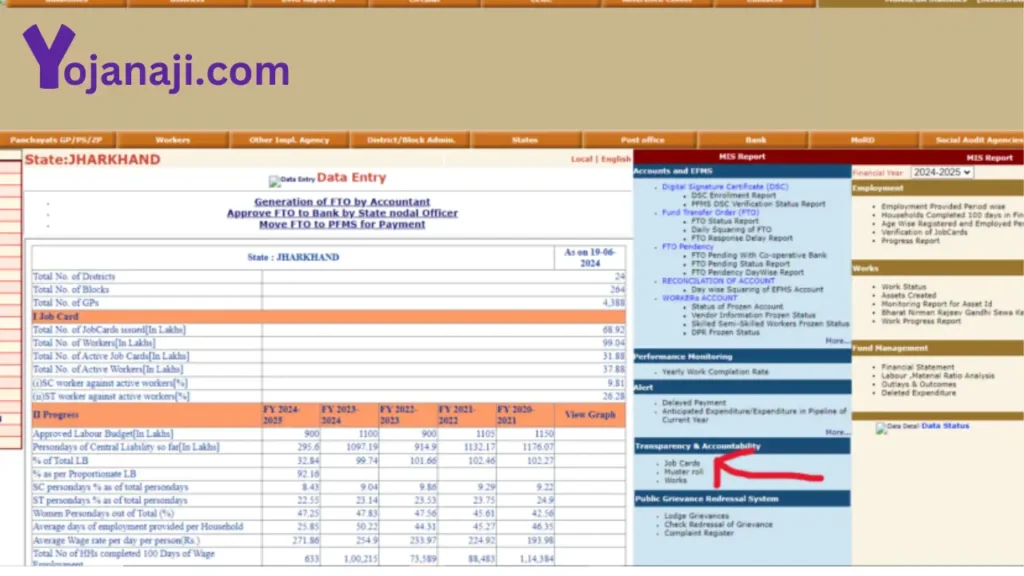
Step 3: Fill Out the Online Application Form
Once you reach the registration page, you’ll need to fill out the online application form. Key details required include:
- Personal Information: Names, ages, and genders of household members.
- Address Details: Full address including village and district.
- Identification Proof: Aadhaar numbers or other required IDs.
Ensure that all details are entered accurately. Any discrepancies or errors could delay the registration process.
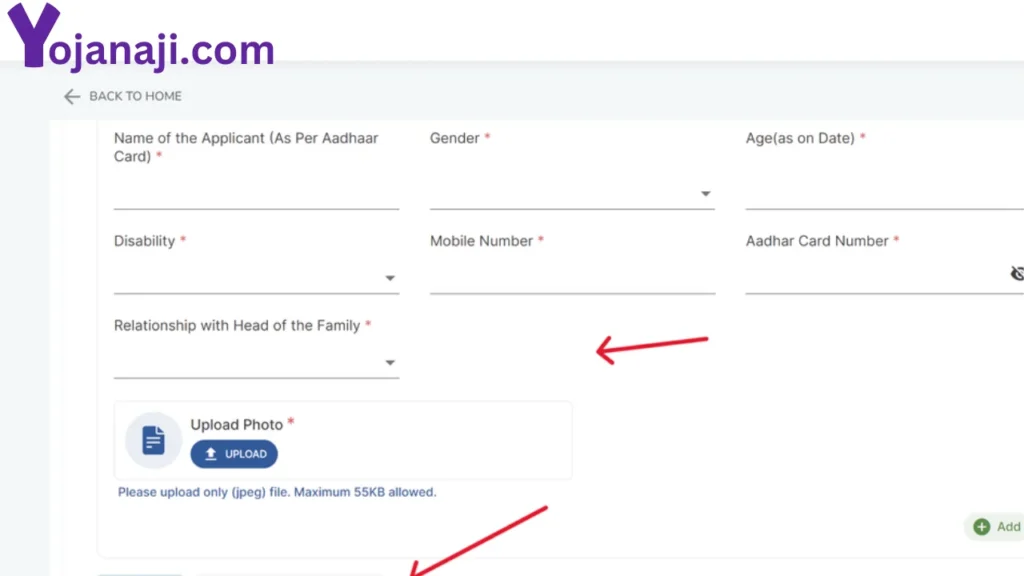
Step 4: Submit the Application
After filling out the form, review the information to ensure accuracy. Submit the application online through the portal. Once submitted, you should receive an acknowledgment receipt or reference number. Keep this receipt safe as it may be required for tracking your application status.
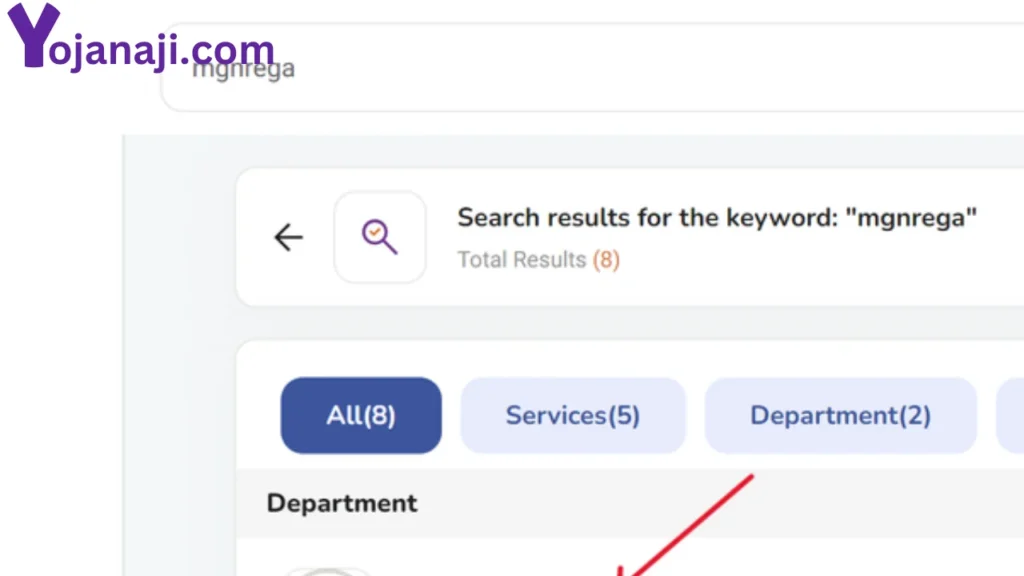
Step 5: Verification and Job Card Issuance
The submitted application will be reviewed by local authorities. If everything is in order, the Gram Panchayat will process your application and issue a Job Card. The Job Card will be sent to you, either electronically or physically, depending on the local procedures.
Step 6: Accessing the Job Card
In some cases, you might need to visit the local Gram Panchayat office to collect your Job Card. Alternatively, it might be delivered to your address. Verify that all details on the Job Card are correct and retain it for future use.
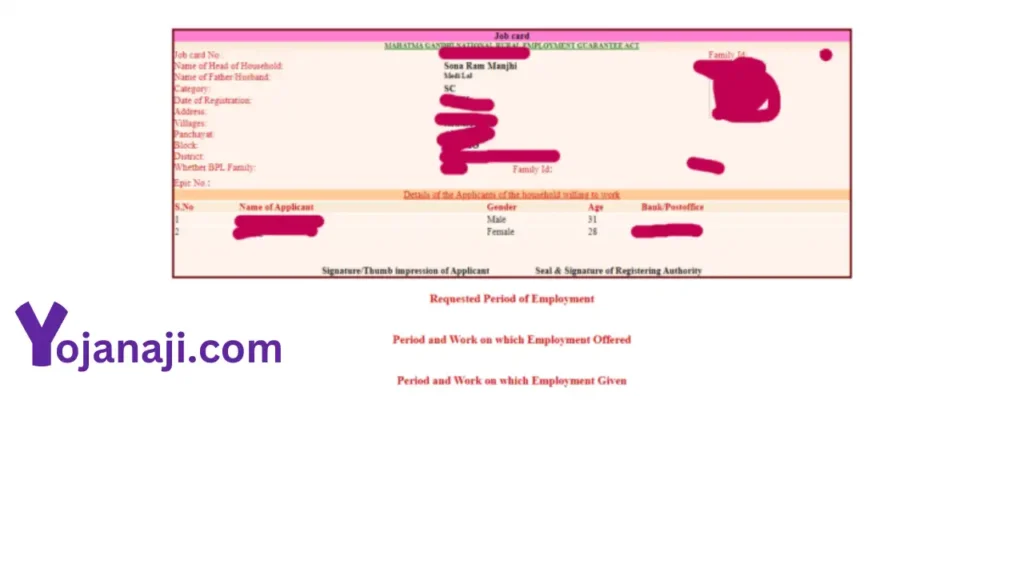
The online registration process for the NREGA Job Card involves several steps that make it easier for rural households to apply for employment under the Mahatma Gandhi National Rural Employment Guarantee Act (MGNREGA). Here’s a detailed guide on how to register online:
- Visit the Official NREGA Website: Start by navigating to the official NREGA portal at nrega.nic.in.
- Select Your State: On the homepage, you will see a list of states. Click on the name of your state to proceed to the state-specific NREGA page.
- Access the Registration Section: Look for a section or link labeled “Job Card Registration” or “Apply for Job Card” on the state-specific page. This will take you to the online application form.
- Fill Out the Application Form: Complete the form by providing necessary details such as the name of the applicant, age, gender, address, and the names of other household members. Ensure that all information is accurate and matches official documents.
- Submit Supporting Documents: Upload the required documents, which typically include identity proof (such as Aadhaar card) and address proof (such as a ration card or voter ID). Some states may also require additional documents.
- Submit the Application: After filling in all the details and uploading the documents, submit the application form online. Once submitted, you will receive an acknowledgment or reference number, which you should note for future reference.
- Verification and Issuance: The local Gram Panchayat will verify the details provided. If everything is in order, the job card will be issued within 15 days, and you will be notified to collect it or download it from the website.
By following these steps, rural households can conveniently register for an NREGA Job Card online, facilitating their participation in the MGNREGA scheme and accessing guaranteed wage employment.
Offline Registration Process
The offline registration process is ideal for those who prefer or require in-person assistance. Here’s a detailed guide to the offline registration method:
Step 1: Obtain the Application Form
Visit your local Gram Panchayat office or Block Development Office to obtain the NREGA application form. These forms are available at these offices and are free of charge. In some cases, you might also be able to collect the form from local community centers or government offices.
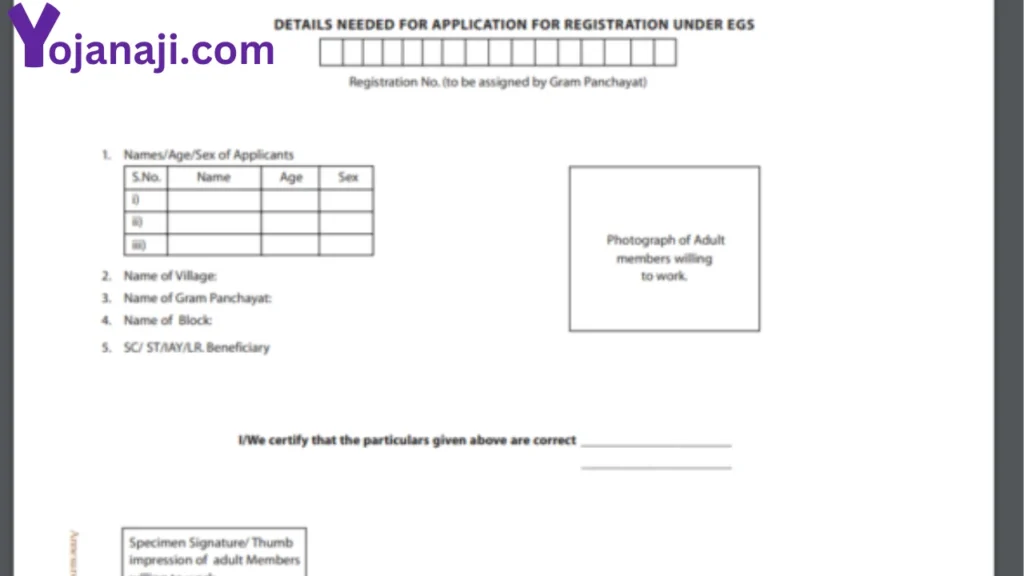
Step 2: Fill Out the Application Form
Complete the application form with the required details:
- Personal Details: Names, ages, and gender of all household members.
- Address: Full address of the household.
- Employment Preferences: Types of work the household members are willing to perform.
- Identification Proof: Aadhaar numbers, voter IDs, or other relevant documents.
Ensure that all information is accurate and legible to avoid any processing issues.
Step 3: Submit the Form
Submit the completed application form to the local Gram Panchayat office. It is advisable to get an acknowledgment receipt when you submit the form. This receipt will serve as proof of your application and can be useful for tracking your registration status.
Step 4: Verification and Job Card Issuance
The Gram Panchayat will verify the details provided in your application. This process may involve local verification of the information. Once your application is approved, the Job Card will be issued to your household.
Step 5: Collect the Job Card
After the verification process, you can collect your Job Card from the Gram Panchayat office. Alternatively, it may be delivered to your home, depending on local practices. Check the Job Card for accuracy and ensure it is kept safe, as it is essential for requesting and recording work under NREGA.
Challenges and Tips for a Smooth Registration Process
While the registration process is designed to be user-friendly, there can be challenges such as delays in processing or issues with document verification. To mitigate these challenges:
- Follow Up Regularly: Stay in touch with the Gram Panchayat office to check on the status of your application and Job Card issuance.
- Maintain Proper Records: Keep copies of all submitted documents and receipts for future reference.
- Seek Assistance: If you encounter difficulties, seek assistance from local officials, NGOs, or community organizations that are familiar with NREGA procedures.
- NREGA MIS Report
- NREGA Registration Process
- Sukanya Samriddhi Yojana (SSY) Apply
- NREGA Job Card Download
- PM Kisan 18th Installment: पीएम किसान योजना की 2000 रुपए की 18वीं किस्त जारी, जानें कैसे करें चेक
- Rajasthan Job Card List
- Jharkhand Job Card List
- Madhya Pradesh Job Card List
- Ladli Behna Yojana 17th Installment: लाडली बहना योजना की 1250 रुपए की 17वीं किस्त जारी, जानिए कैसे चेक करें
- NREGA Job Card List
- Full Form of NREGA- National Rural Employment Guarantee Act
- NREGA Wage List
- NREGA Application Status
- PM Ujjwala Yojana 2025: फ्री गैस सिलेंडर के लिए ऑनलाइन फॉर्म भरना शुरू, जानें कैसे करें आवेदन
- Ladli Behna Awas Yojana List: लाड़ली बहना आवास योजना की नई लिस्ट जारी, अभी चेक करें अपना नाम
- Odisha Job Card List
- Chhattisgarh Job Card List
- Punjab Job Card List
- Uttar Pradesh Job Card List
- Bihar Job Card List
Final Recall
The NREGA registration process is a vital gateway to accessing the benefits of one of India’s most significant rural employment schemes. By understanding and following these steps, households can ensure that they are registered correctly and can take full advantage of the opportunities provided under NREGA. This process not only facilitates access to employment but also empowers rural communities by providing a safety net and contributing to their overall socio-economic development.

Tamim is a distinguished policy analyst with over 15 years of experience in analyzing, government schemes and policies. Tamim brings a wealth of knowledge and expertise in the field of social development.

